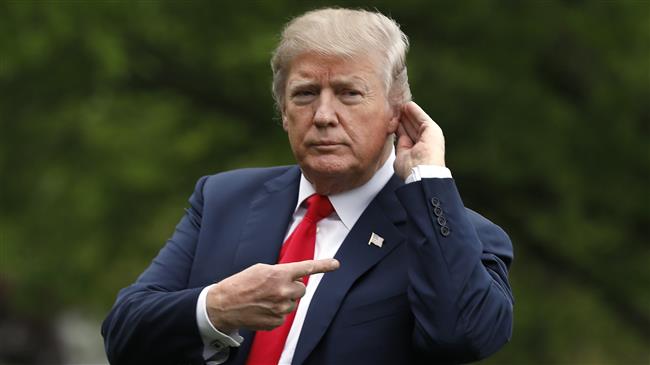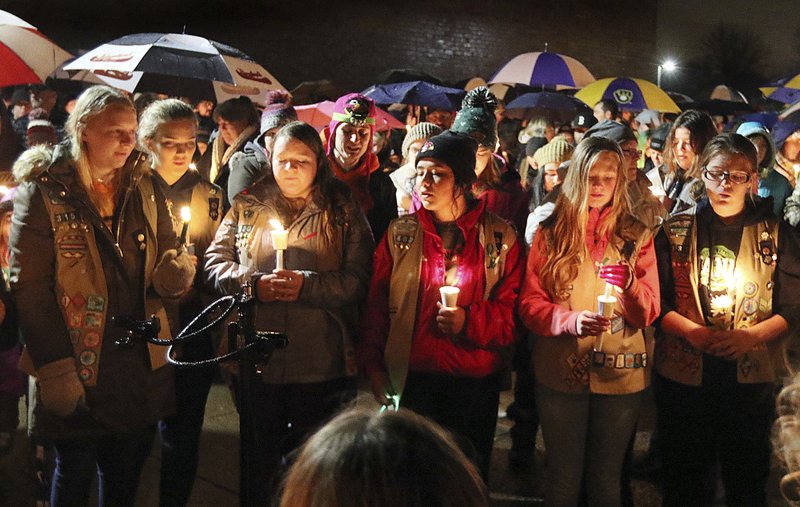
Trump’s withdrawal from the Iran nuclear deal is the greatest boost for American and global security in decades.
President Donald Trump has withdrawn the US from the Iran nuclear deal, an act that could cause the slow-motion collapse of the entire agreement and ultimately lead Iran to pursue nuclear weapons.
In his speech Tuesday afternoon announcing his decision, Trump said that the 2015 accord negotiated by President Obama didn’t adequately constrain Iran to prevent it from building a nuclear weapon.
“It is clear to me that we cannot prevent an Iranian nuclear bomb under the decaying and rotten structure of the current agreement,” Trump said. “The Iran deal is defective at its core. If we do nothing, we know exactly what will happen.”
The president said he was open to negotiating a new deal that would put tougher restrictions on Tehran’s nuclear program and limit other aspects of Iran’s behavior, including its development of ballistic missiles and its support for terrorist groups in the Middle East.
“Iran’s leaders will naturally say that they refuse to negotiate a new deal,” Trump said. “And that’s fine. I’d probably say the same thing if I was in their position. But the fact is they are going to want to make a new and lasting deal, one that benefits all of Iran and the Iranian people.”
“When they do, I am ready, willing, and able,” he added.
In 2015, the US, the UK, Germany, France, the European Union, Russia, and China agreed to lift crippling sanctions on Iran’s economy in exchange for Iran scaling back its nuclear program.
Now Trump is reimposing US sanctions, and Iran will have to decide if it sees any point to remaining in the deal even though the US isn’t upholding its side of the bargain.
Trump’s sanctions will hurt Iran’s struggling economy
National Security Adviser John Bolton told reporters on Tuesday that Trump’s decision immediately reinstates US sanctions that were in place against Iran before the nuclear deal was reached. All future business with Iran that is covered by those sanctions — such as buying oil from Iran — is officially off limits in the eyes of the US government.
Companies and banks that are already doing business with Iran will have three to six months to wind down their business before being subject to sanctions.
According to the Treasury Department, sanctions targeting Iran’s automotive sector will be reimposed in 90 days; sanctions targeting Iran’s oil sector will kick back in after 180 days.
The oil sector sanctions are among the most important because Iran relies enormously on oil sales to power its economy and a number of US allies currently buy oil from Iran.
All countries, including US allies in the deal, will need to start showing they’re beginning to meaningfully reduce oil imports from Iran. If they don’t, their banks could get sanctioned by the US in six months.
Richard Nephew, a former State Department official who headed the sanctions team during negotiations for the 2015 agreement, told me he expects European countries will comply to some extent with the sanctions but doesn’t expect Russia and China to do so.
Several of the major companies that could be hit are French — including the oil and gas company Total and the car companies Peugeot and Renault. That’s because they get financing from French banks, which would be sanctioned unless France cut its oil imports.
Treasury Secretary Steve Mnuchin announced on Tuesday that Boeing’s license for plans to sell $20 billion worth of aircraft to Iran has been revoked.
Trump’s approach is unlikely to result in a better Iran deal
Analysts say the sanctions will deal a serious blow to Iran’s already struggling economy, which has a high unemployment rate and is overly reliant on oil exports.
Iran’s currency, the rial, was already spiraling in the runup to Trump’s decision because of widespread fears of instability in the Iranian economy. After Trump announced the decision, it hit a record low of about 65,000 rials to $1 US.
Trump has described his move as a pressure tactic to force Iran to come to the negotiating table and make bigger concessions than it made under the original agreement in 2015.
But that seems highly unlikely; European and Iranian leaders spent years hammering out the initial agreement, think it’s working as planned, and have little incentive to reopen negotiations.
“This announcement is a visceral blow to Iran’s dignity, and no serious politician would survive an effort to engage with the Trump administration at this time,” Suzanne Maloney, an Iran scholar at the Brookings Institution, told me.
Iranian President Hassan Rouhani announced Tuesday that he is instructing his diplomats to negotiate with Europe, Russia, and China over remaining in the deal. “We’ve known for months that President Trump wouldn’t be committed to this deal,” Rouhani said. “The Iranian foreign ministry will continue talks with remaining countries in the deal.”
But he also announced that he’s directed his nuclear agency to “be ready to start the enrichment of uranium at industrial levels” in defiance of the terms of the deal.
Experts say Rouhani will come under pressure from hardliners in Iran to take actions that show the country isn’t going to just be pushed around by the US. Iran could start refusing to comply with the nuclear deal’s terms in any number of ways, such as limiting international inspectors’ access to its nuclear facilities or restarting centrifuges that can enrich uranium, which can be used to make nuclear weapons.
Over time, any reluctance by Iran to abide by the deal’s conditions could provide cover for the beginning of a serious push toward developing nuclear weapons.
If no new deal can be struck, and Iran decides to chase after nuclear weapons, then the Trump administration will be in a very, very tough spot. It will have to either accept the emergence of a nuclear-armed Iran or take military action to prevent that from happening.













